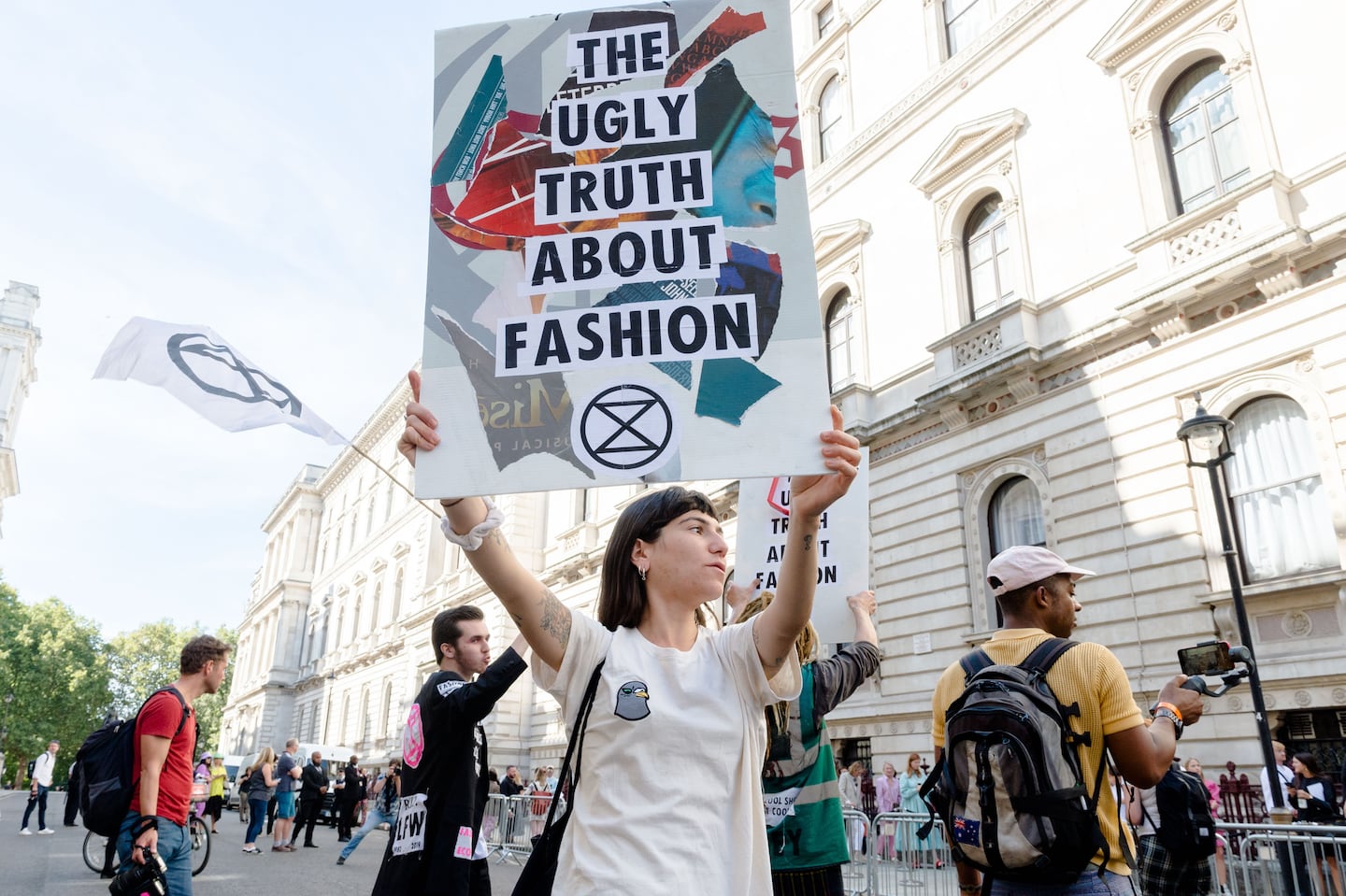
The Business of Fashion
Agenda-setting intelligence, analysis and advice for the global fashion community.

Agenda-setting intelligence, analysis and advice for the global fashion community.

LONDON, United Kingdom — The fashion industry is facing an existential crisis, but some see this as an opportunity to fix long-standing environmental and social issues within the system.
Industry advocacy group Global Fashion Agenda is calling on companies to use the aftermath of the current crisis to rebuild a more responsible fashion system.
"Sheer survival is the top priority for many. However, this crisis represents an opportunity for us to re-evaluate the lexicon of fashion and, by default, its entire system of operations," GFA Chief Executive Eva Kruse said. "I urge fashion leaders to rethink and rebuild systems in a collective effort to ensure a just and resilient future post-pandemic."
The organisation, which is supported by many of the industry’s biggest players, including Kering and H&M group, and lobbies for more sustainable practises, has outlined six focus areas for senior executives that represent “win-win” opportunities to drive change. Among them, the advocacy group called on executives to improve transparency and traceability in order to better measure negative environmental and social impact and build trust and brand loyalty.
ADVERTISEMENT
In the wake of the pandemic — which has strained fashion's supply chain as brands cancelled billions of dollars worth of orders — companies should focus on deeper and more equal relationships with manufacturers and suppliers, the GFA said. At the same time, the overstock crisis already unfolding as a result of forced store closures and low consumer demand should encourage brands to address long-standing issues with overproduction and markdowns, and double down on efforts to digitise the industry through more efficient and predictive e-commerce operations and use of digital tools for showrooms and sampling.
With its updated CEO Agenda, GFA lends its voice to a growing chorus of industry watchers anxious to see fashion emerge from this crisis with a better model of operation than before.
Over the last few weeks, Saks Fifth Avenue announced it was in talks with more than 20 independent brands to only sell products in stores when seasonally appropriate. Last week, Dries van Noten and a consortium of mostly independent designers, executives and retailers announced a proposal to shift fashion's seasonal delivery schedule. A group of over 60 designers and executives have published a parallel proposal for resetting the fashion week calendar facilitated by BoF. The International Labour Organisation has convened a working group to find ways to protect garment workers from the immediate fallout of the pandemic and establish more robust social protection systems for the long term.
But even as some in the industry mobilise for change, the ongoing financial crisis caused by Covid-19's impact on retail is throwing up new challenges to action. While a growing body of research suggests that brands and companies that take steps to operate more responsibly will be better placed long term, many within the fashion industry are struggling to think beyond survival for the next few months.
Related Articles:
[ Fashion’s Sustainability Goals Threatened by the CrisisOpens in new window ]
[ Will Fashion Ever be Good for the World? Its Future May Depend on ItOpens in new window ]
[ Fashion’s Growth-Focused Business Model Is Not Sustainable. What’s the Solution?Opens in new window ]
The fashion industry continues to advance voluntary and unlikely solutions to its plastic problem. Only higher prices will flip the script, writes Kenneth P. Pucker.
The outerwear company is set to start selling wetsuits made in part by harvesting materials from old ones.
Companies like Hermès, Kering and LVMH say they have spent millions to ensure they are sourcing crocodile and snakeskin leathers responsibly. But critics say incidents like the recent smuggling conviction of designer Nancy Gonzalez show loopholes persist despite tightening controls.
Europe’s Parliament has signed off rules that will make brands more accountable for what happens in their supply chains, ban products made with forced labour and set new environmental standards for the design and disposal of products.